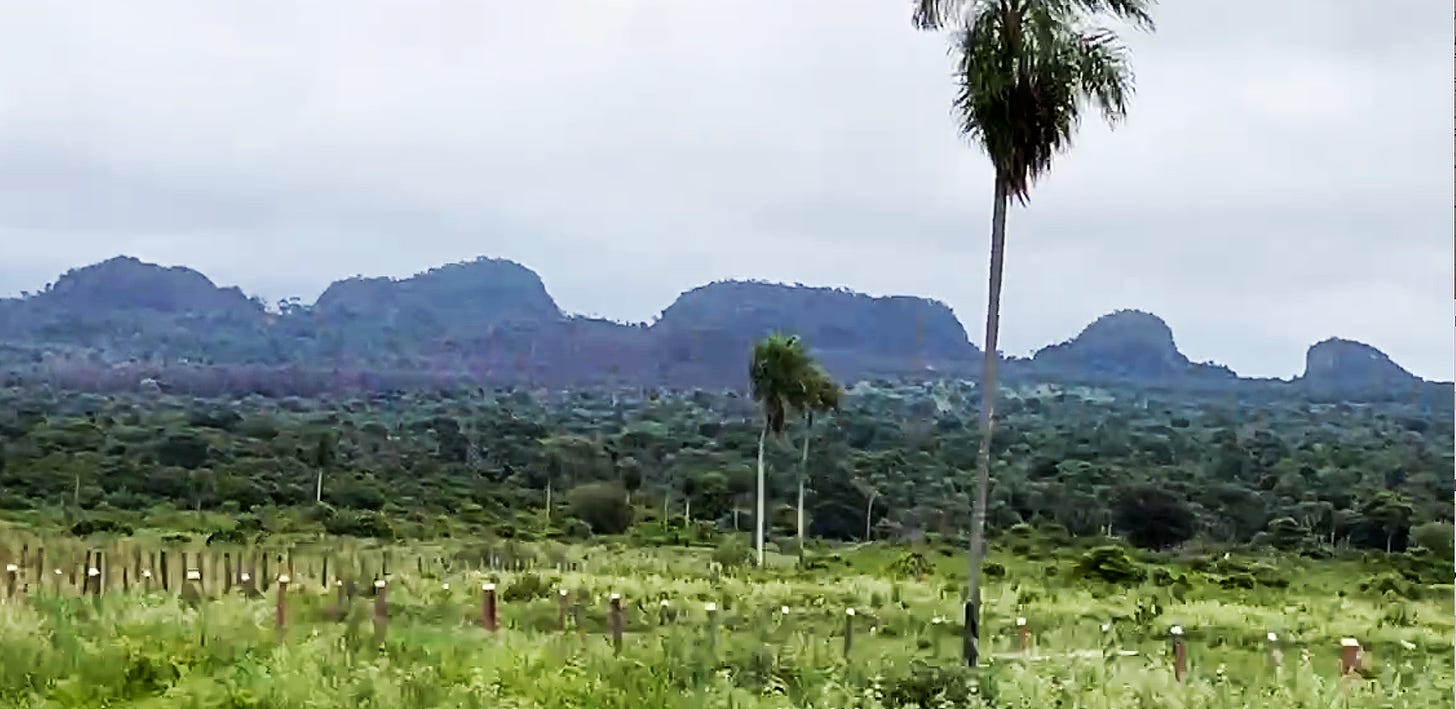Oh, the Places You'll Go!
Nobody Goes to Paraguay
Pedro Juan Caballero, Paraguay • December 10-12, 2024
We spend our last three days in two small towns up on the northern border. Yby Yaú is little more than a wide spot where two main roads come together. Further north is a bigger town, Pedro Juan Caballero, where we spend each night at a hotel. Pedro Juan is not a large town. It’s not quite big enough for bus service, so if you want to go anywhere you walk or ride your motor scooter. But it is a bustling place, most likely due to the fact that the main road in town is the border between Paraguay and Brazil. If you’re on the right side of the road, everything is written in Portuguese; if you’re on the left side, everything is Spanish. Which doesn’t seem like it would a difficult problem to live with until I find myself needing money in Guarani, but the only ATM I can find will only let me withdraw Brazilian Reales.
The family that Tanner visits lives in the mostly unpronounceable town of Yby Yaú. They are extremely cordial and welcoming, and for lunch they prepare a traditional dish called Sopa Paraguaya. Despite the sopa in its name, it’s not actually soup; it’s more like cornbread. There are, of course, many stories of how this dish got its contradictory name, but here is the version I like best: Sometime in the middle of the 19th century, an unpopular diplomat—both for his personality and the country he represented—was visiting the National Palace. A meal was prepared in honor of his visit, but the soup—most likely intentionally— was left cooking for too long. They served the soup anyway, and, to everyone’s surprise, the diplomat liked it, and while eating it observed “this is what passes for soup in Paraguay.” And thus, Sopa Paraguaya was born.
In the mornings and evenings, we drive an hour and half between the two towns. The countryside is magically green, and it consists of open, sweeping fields that are dotted with palm trees. In one stretch, a row of free-standing hills crosses the road. Tanner calls these “the Dr. Seuss hills” because they look like they came right out of a Dr. Seuss book. On our last morning, Maelstrom and Tanner decide they need to climb one. This uniquely American trait—the need to climb things rather than simply veiw them—baffles our driver. But he is happy to stop and let us do our thing, until Tanner and Maelstrom drag him along. I don’t think he ever thought that he ’d be in this part of his own country, and I’m certain he never imagined that he’d be scrambling up the side of Cerro Memby trying to keep up with a crazy American lady.




Those hills do look almost unreal. And Maelstrom does want to climb everything, but is that American or just her?